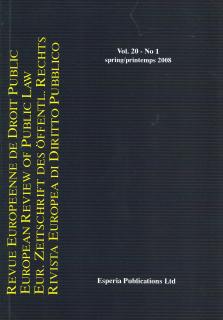
European Security: Ireland
T. John O’Dowd
UCD School of Law, UCD Dublin
The Irish legal system shows considerable openness to European co-operation in justice and home affairs matters, starting with the constitutional provisions relating to membership of the Union. However, Irish courts recognise that measures adopted under Title VI EU have no direct effect in domestic law, though there may be an interpretative obligation associated with them. Although an Act of the Oireachtas is needed to transpose such measures into Irish law, such a law is nonetheless protected from constitutional challenge. The need for parliamentary authorisation is confirmed by Article 29.4.6° under which such prior authorisation is required before Ireland can participate in the adoption of a measure under Title VI. Despite this emphasis on parliamentary control, parliamentarians often complain that they have inadequate information or time for preparation and, often, are not consulted at all particularly as regards matters within the third pillar decision-making and the effectiveness of the human rights guarantees. At least one national judge has also described the Framework Decision on the European Arrest Warrant as “extraordinarily loose and vague” in its drafting and lack of clarity as regards fundamental rights. These difficulties are aggravated by Ireland’s failure to accept the jurisdiction of the Court in relation to Title VI of the Treaty on European Union.





















